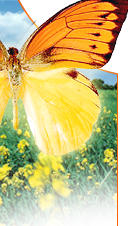 |
 |
EARTH ETHICS 1995 Fall Awakening Academia , by Mary E. Clark. Likening current academic thinking to dwarves going into their own mines each day, U.S. academia is suffering from "a surfeit of specialized 'knowledge' and a dearth of wisdom and vision." Wakening these academic "slumbering giants" to the connections among our ecological, social, scientific and economic disciplines is essential to facing current challenge. The Universe and the University, by Thomas Berry. CRLE cofounder Thomas Berry proposes that all academic disciplines need to reshape their language and world view to reflect the new vision of an interconnected and interdependent creation. Georgics Book II, 475-486 poetry by Virgil (70-19 BC) translated by Jean Barrett and Jonathan Spiegel. Principles of Sustainability in Higher Education by Second Nature and the Secretariat of University Presidents for a Sustainable Future. Excerpts from the draft report of the Workshop on Principles of Sustainability in Higher Education. A gathering held February 1995 under the auspices of the President's Council on Sustainable Development. The Ecological Transformation of Christian Traditions by James Nash. All of our religious traditions have contributed in some significant degree to the three fundamental failures at the root of the ecological crisis. Ecologically reformed faith traditions must probe deeply into their doctrinal themes to identify and advocate ecologically relevant values. Ecological Design by David Orr. "Good design" has certain common characteristics in all areas of our lives. Institutions of higher education need to apply these principles to all aspects of their institutional life. A Paradigm Shift in Academic Knowledge, by Richard M. Clugston. Fundamental assumptions that have organized the modern project are undergoing a revolution in paradigms. One very concrete example may be found in the American Institute of Architects' (AIA) sweeping ethical statement known as the "Hanover Principles." This document has formed the foundation of the "Declaration of Interdependence for a Sustainable Future" adopted by the AIA and the World Congress of the International Union of Architects. A Way of Looking by Stephanie Kaza. The touching story of a relationship with a tree and the hole left in the heart and in the universe by its passing. |